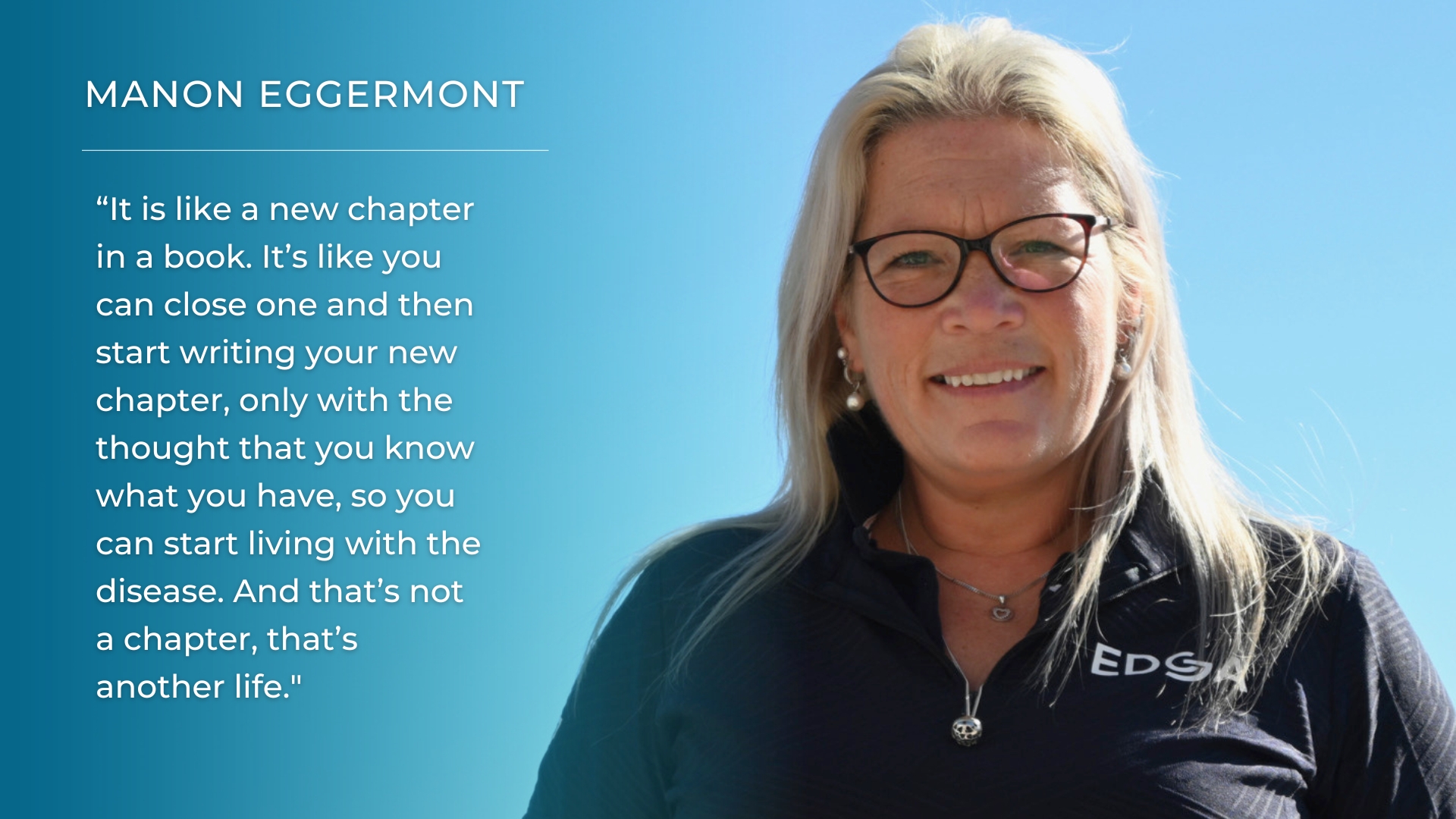Audio:
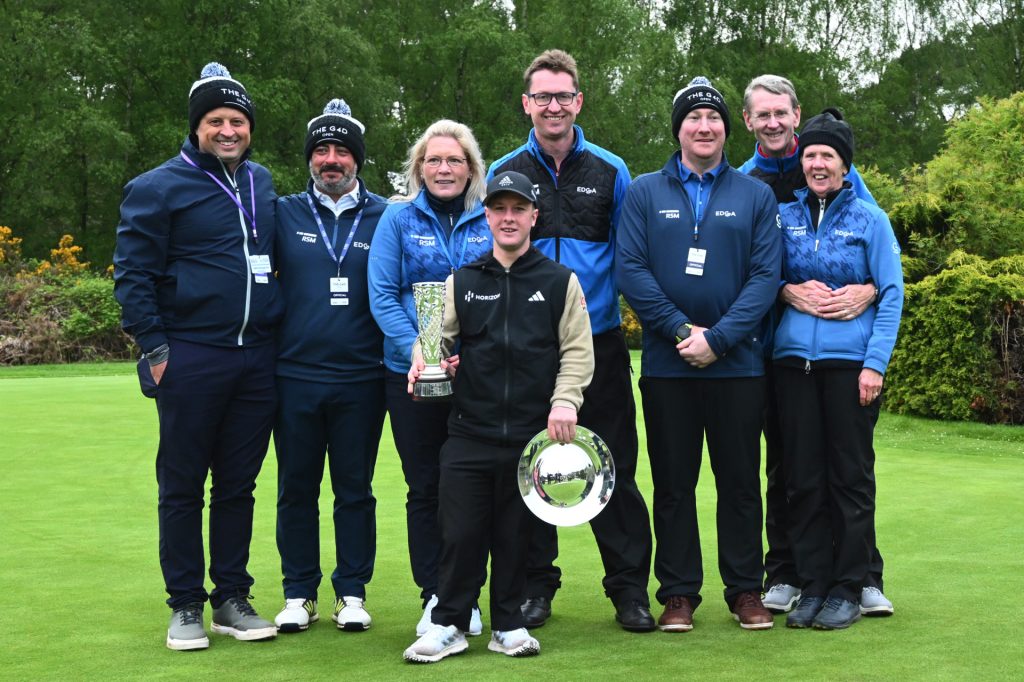
Manon Eggermont is the Director of Tournaments for EDGA. When overseeing a championship, she meets the competitors as they sign in before the event and is constantly impressed with how these golfers, with a range of disabilities, prepare to take on the course and push themselves to the maximum.
Some of the players first get to know her on competition day when they hand in their scorecards after aiming to break 70, 80 or 90, whatever their goal is on the day.
Manon’s smile, ready laugh, and calm manner in her work is in accord with how many of these players approach their own lives, and their golf. Most embrace the fact that friendship and competition in playing this game can help with everyone’s mental wellbeing and physical health.
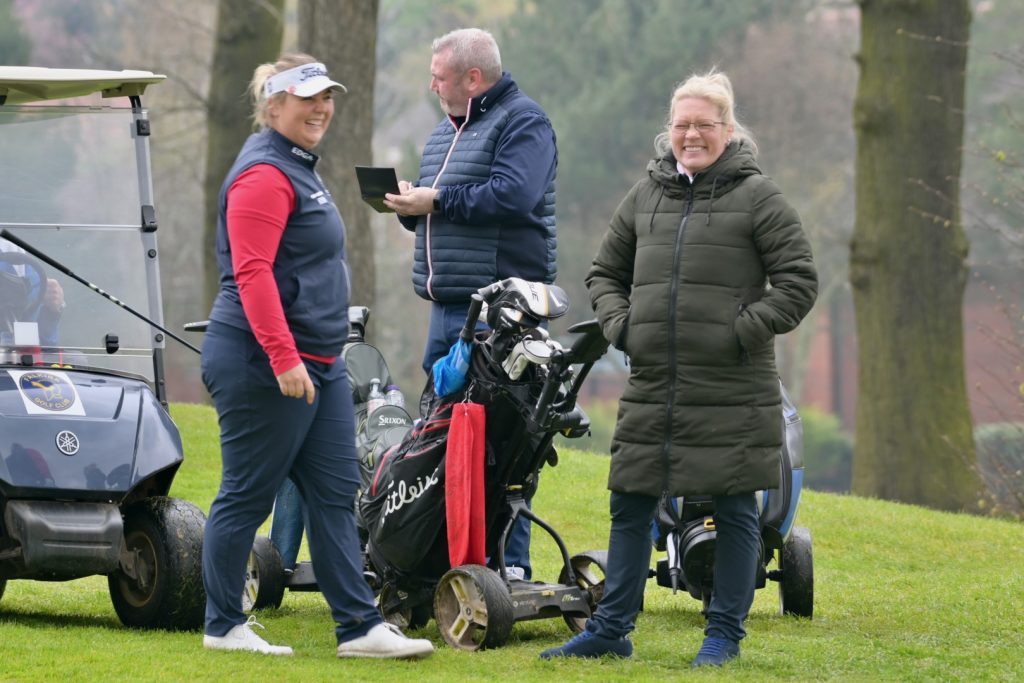
Back in 2012, when a doctor told the then 40 year-old Manon to be prepared that she might not live past the age of 60, it was a shock. But this doctor was looking at a clipboard full of statistics on her condition around a faulty gene, ‘HLA-B27’: while the person sitting opposite the earnest white coated medico quickly focused on another target.
For on her own scorecard Manon is highly focused on breaking 70, but going in an upward rather than downward direction. In fact, Manon is determined to break 80, with recent birdies on this scorecard being the blessed arrival of her two young sons, Sébastien, in 2015, and Maxime in 2017.
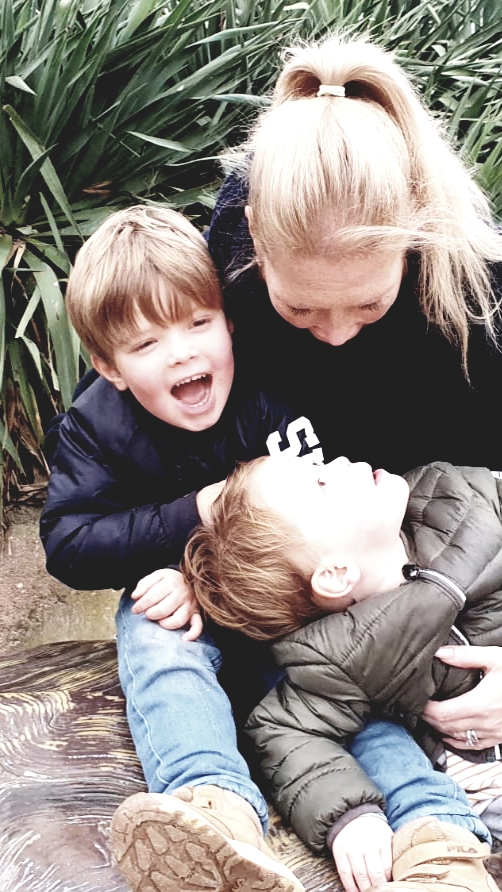
Meanwhile, she is thriving in her work for EDGA, where she is much-liked and respected in the community of self-termed ‘Golfers First’ (ie, person first, disability second), having been a volunteer for the not-for-profit organisation for more than a decade and now sitting on EDGA’s Board of Directors in her tournament role.
We asked her about her condition.
“Well, I have a defect gene and it’s pretty much this that can lead to infection in my blood. It’s an auto-immune disease, and it takes the force out of my body; every year a little bit more. And the more stress I get, the more my functions suffer. So if I do too much, I get sick, and can get really sick. I have needed chemotherapy to get over it – to get better – or strong medication, and it makes me lose force in my hands, in my feet.”
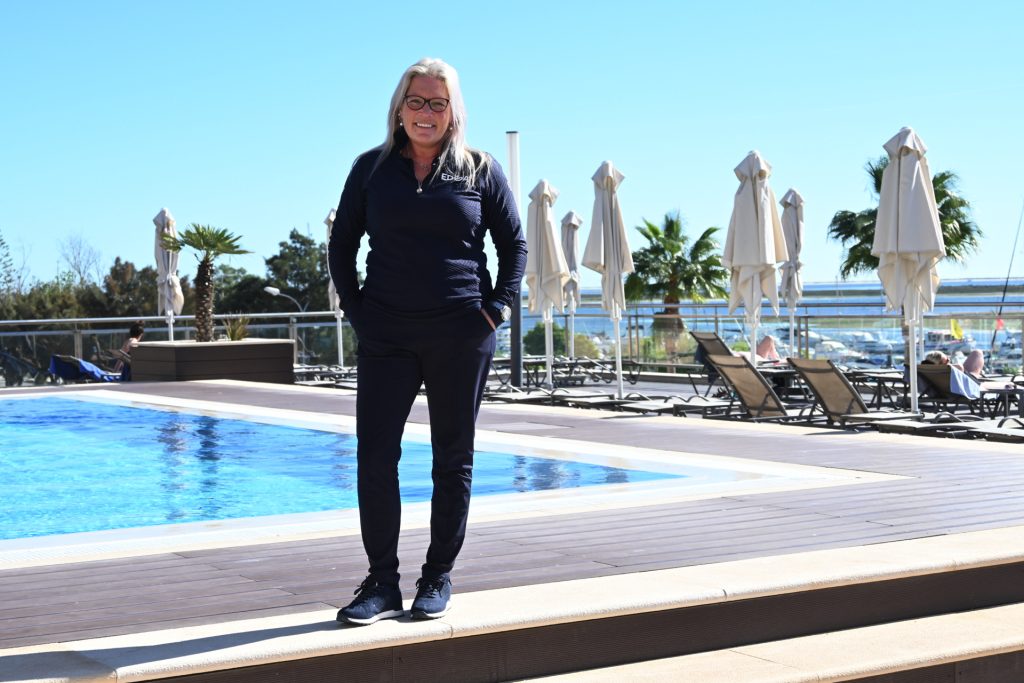
Manon had first been diagnosed with this rare auto-immune condition, around HLA-B27, when aged 23. It can be distressing to live with. Complex, based around ankylosing spondylitis (AS), it can include arthritis and painful swelling in the spine, knees, other joints and the rest of the body. It can come and go as well, creating hope and frustration at every turn.
“It creates a little bit of impairment playing sport. Pain is not the main issue… That’s obvious, which is a thing that a lot of EDGA players have to deal with. But the thing that made me stop playing tennis when younger was more the force that I started to lose. And that’s what is happening.
“How do I manage that? I think it’s about a really good routine, good food, and to rest a lot. Over the years, I have started to really rely on knowing what my body can and cannot do. If you know that you have got a stressful day one day, enjoy that day to the fullest, because that’s life. And then, you know, the two days after, you’re nothing!
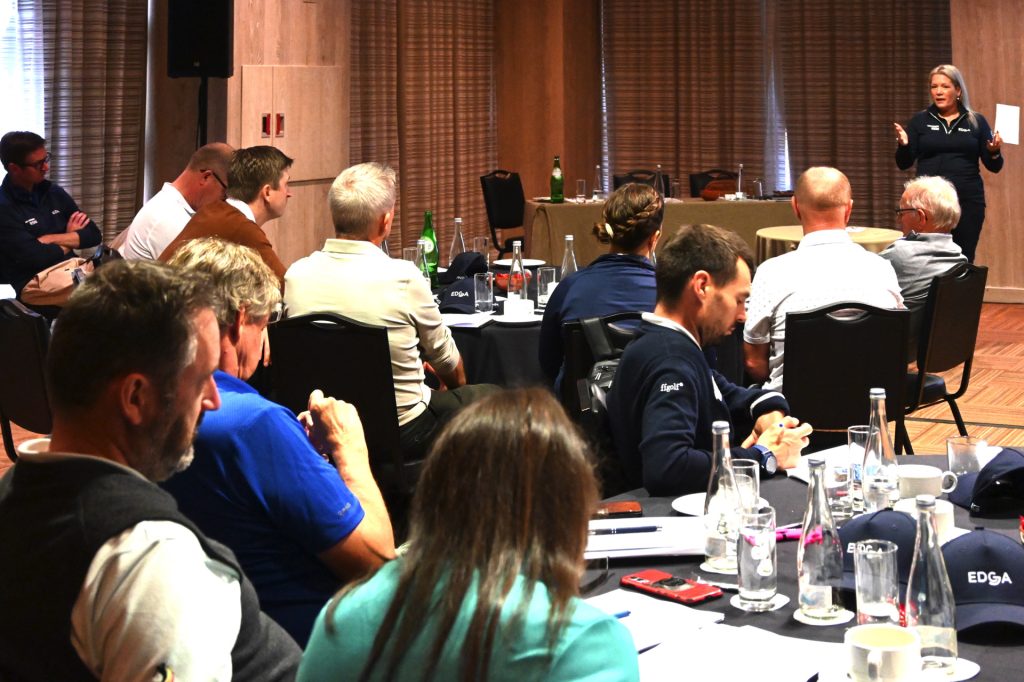
“But the moment you start to accept that, that’s really a gift. If you really start to understand that you have an auto-immune disease, you can enjoy life so much. You just need to know. Maybe we even enjoy the days when we can do more, and be more intensive, because we know we can’t have that every day.”
Manon grew up in The Netherlands in a close-knit, loving family, who loved their sport. She describes her childhood as perfect and six years ago moved her family back to her first home area just south of Rotterdam (the community is called Krimpen aan den IJssel) so her children could enjoy the same, friendly surroundings in which she thrived.
“Golf runs in my family. My sister Sandra is a golf professional [former player on the Ladies’ European Tour]. My parents have played golf as long as I can remember. My favourite sport was, to be honest, tennis. But when I got sick, I couldn’t play tennis anymore. I didn’t have the force in my hands anymore to reach and hit the balls. So, golf was pretty much the only sport left that I could do at that moment. I started to play golf.”
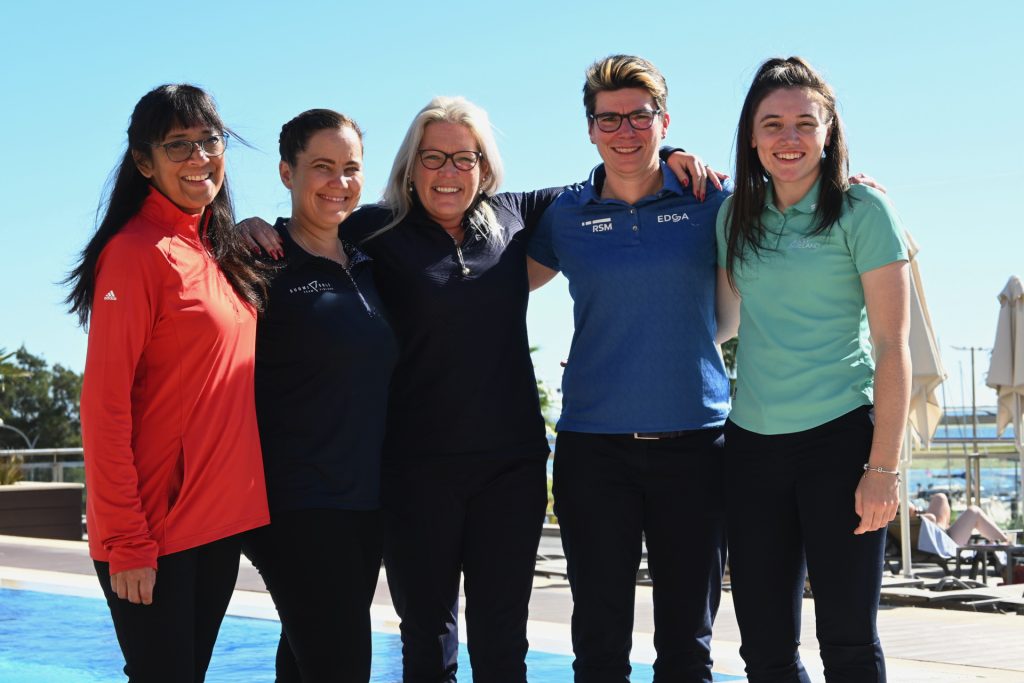
Manon started to realise something was wrong with her body in her teens.
“I think it started when I was 16 years old. I was playing at a pretty high level of tennis, and I started to have injuries in my muscles, and my bones in my feet. And at that time, doctors said, ‘Yes, it’s because you are doing too much.’ I was on the tennis court constantly. And they say with growing up and too much sport, it’s an effect that a lot of people experience. But when I got older, I think 21, my whole leg started to turn yellow, and that’s when the doctor thought that this was not a good sign.
“So that’s when the first blood tests came back and they discovered that I had the disease. From there, they found out a lot of women in my family died really early, and they started to look at the genes. That’s when they found out that we had a defect gene there that effects all this stuff.”
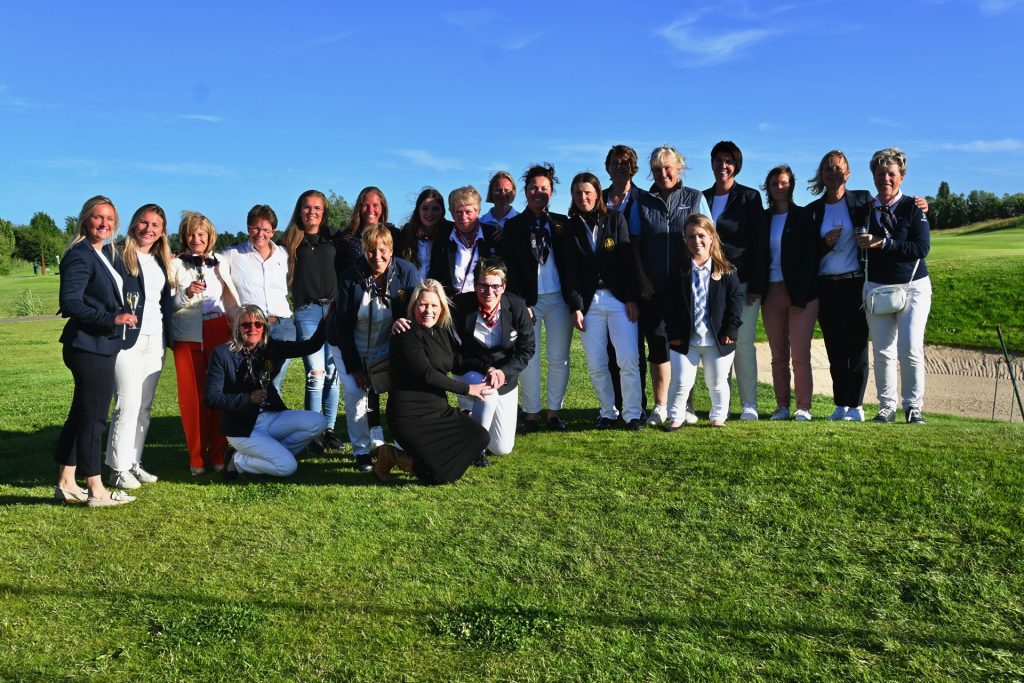
Relief was among the feelings when Manon was finally given a name for her condition and a diagnosis, despite it still being a “puzzle” for the doctors.
“I finally had the name. I was already six or seven years walking around with something, and I didn’t know what. And now it had a name. It doesn’t have medication, but it had a name, and all the symptoms, yes, they were there. I immediately thought, ‘This is it.’
“It is like a new chapter in a book. It’s like you can close one and then start writing your new chapter, only with the thought that you know what you have, so you can start living with the disease. And that’s not a chapter, that’s another life. From the first moment, I thought, ‘Okay, you can say it’s going to be 60, but I will show you: 70 will be a good age – for me, at least [Manon laughs here]. And I never looked back, I just thought of the opportunities. We were just so in to life. And there were opportunities where I worked at the bank and I kind of forgot my disease for another 15 years until it came back.”
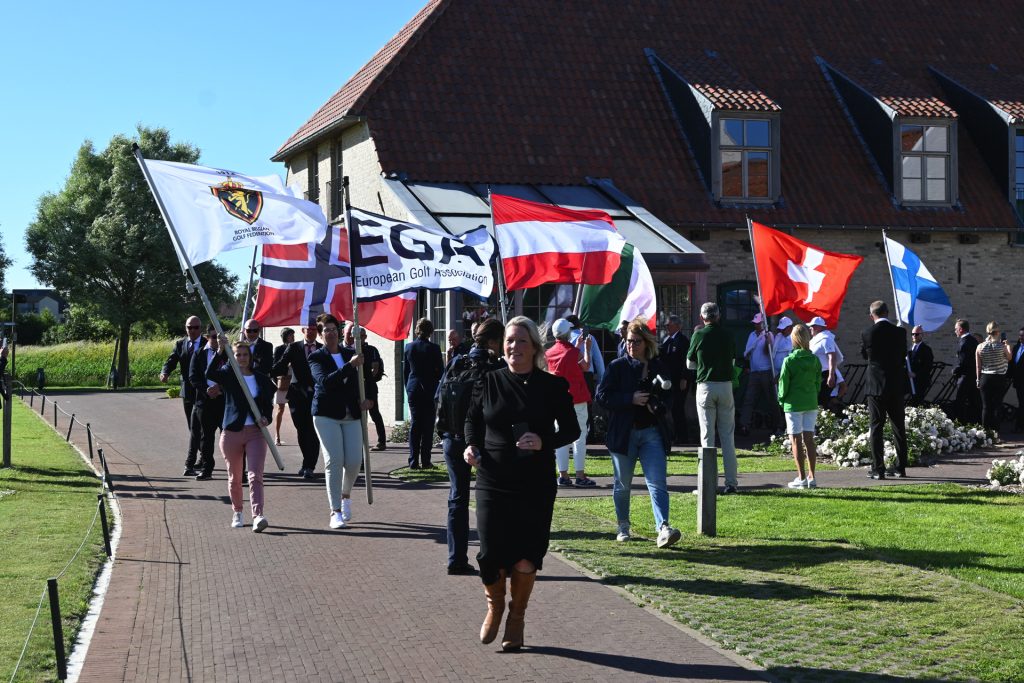
Manon had been told when first diagnosed that she wouldn’t be able to have children. Despite this blow, she remained positive and threw herself into her studies and then jobs. In 1993 she started working at an international bank as a Management Assistant before becoming the International Secretary for the Director of Global Affairs. She had completed her international secretarial degree and could talk with customers and colleagues in a choice of Dutch, English, German and French.
If children weren’t an option, Manon is only half joking when saying she was determined to be ‘Business Woman of the Year’. Fast forward to her forties, and she was working all hours in her career for the bank, and those long hours and weeks of pressure would take their toll, leading to her becoming very ill in 2010.
The one shining piece of brightness was that she happened to be pregnant with her soon to be born son Sébastien at the time, and thus the warning about her possibly not making 60 concentrated her mind. Supported by husband Frederic, she stopped taking medication, radically changed her diet, and sought to have fun and enjoy more of an outdoor life. This all took a while to begin working well but this new philosophy, fused with the joy of bringing up now two boys (when second son Maxime came along), are all part of a recipe that has transformed Manon’s life, making her feel better, fitter and stronger. Her recipe has been completed by sprinkling in what she describes as “the best job ever”, her work for EDGA – having first found golf for the disabled at home in the Netherlands.
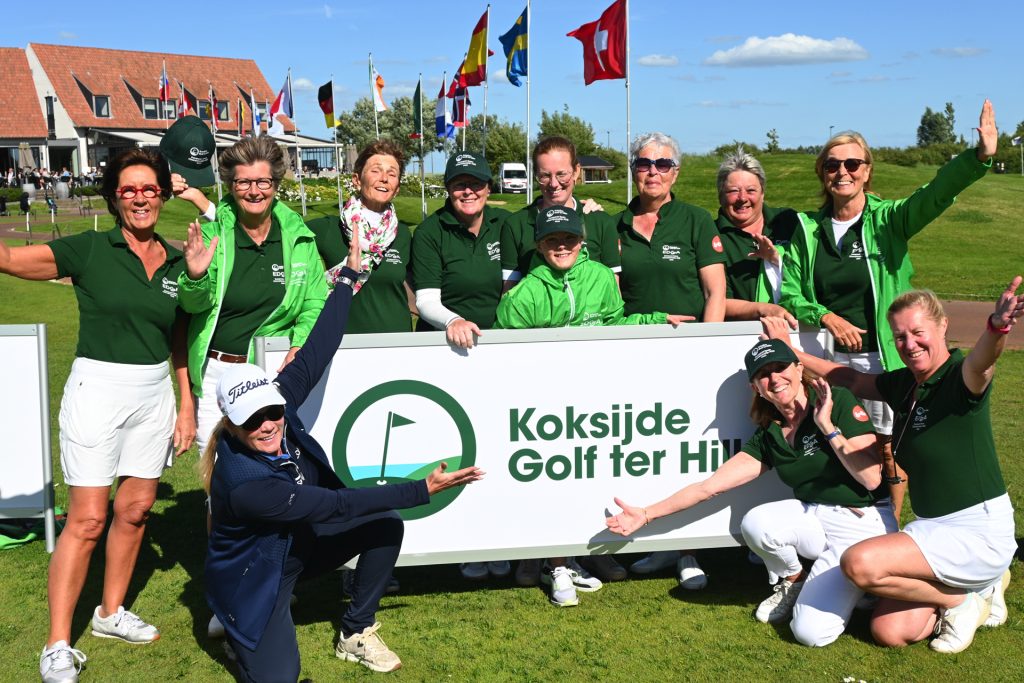
“And at one point, I think it was 2006 or 2007, we had a Dutch disabled open, and the organiser asked me to be a part of the team. That’s pretty much how my involvement started. And from there I met Pieter, Pieter van Duijn, our EDGA vice president. Two years later Pieter asked me to join EDGA. So that’s a little bit how I got started.”
Manon talks fondly of all the people she has met through EDGA, fellow volunteers and staff, a community role that has given her immense satisfaction. She looks back with happy memories that saw her start as a volunteer in administration, paving the way in the last decade for her to take a lead role in the organising of tournaments, running a small, dedicated team. But she smiles when she remembers the early days.
“Yes, it was really amazing. When I started at EDGA, I was already impressed, to be honest, because there were already so many people with a disability being given the chance to play. It was smaller, of course, than what it is now, but it was there and it was developing, and it was already international. But this was more like a really big group of friends. There was an order of merit and people could be fanatical in competition, absolutely. But I think the last seven years have been like a train. I think everything before 2010 was really great and already impressive, but nothing to compare to what it is now.”
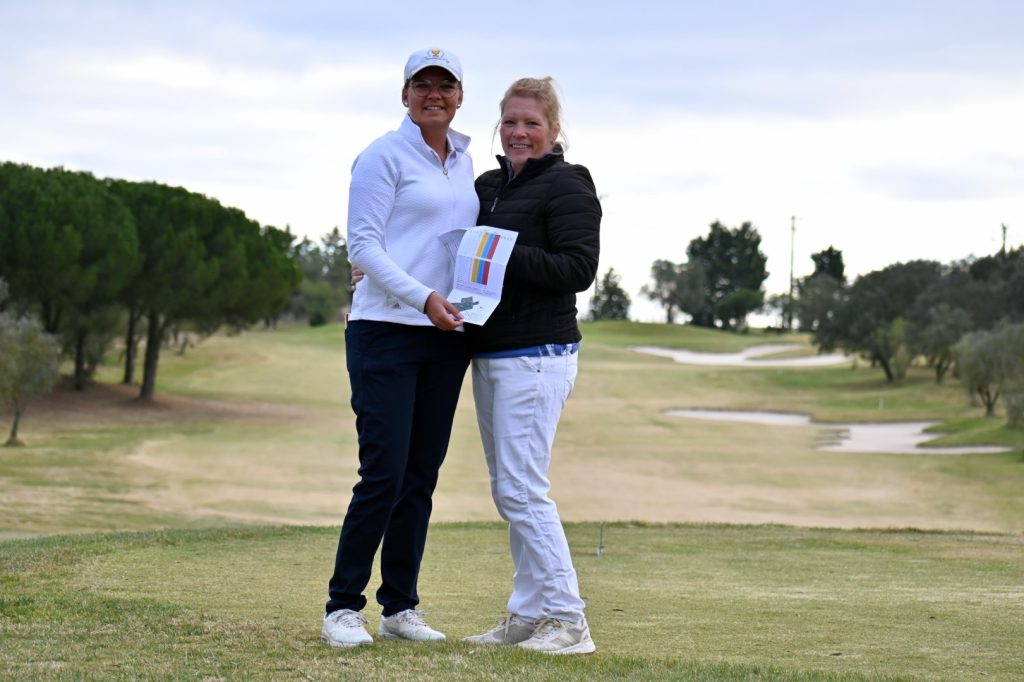
The EDGA Director of Tournaments role began for Manon in 2018. Around this time, EDGA put her forward for, and she was accepted on, The R&A Women in Golf Leadership Programme, describing this as a real honour and, as she explains further, she was thrilled to be part of a group of dynamic women in a great learning experience, and today she is registered as an R&A Women in Golf Leadership Coach.
“From the first sessions, they really said, ‘If you don’t know yourself, you can’t be a good leader.’ And I didn’t know myself. I think somewhere down the line, I lost ‘me’. I did what everybody thought that I should do. And I think a lot of people do that automatically because that’s just how society works. And somewhere down the line, you just forget about what you like and who you are exactly.”
Manon says the whole experience was hugely beneficial, assisting her in starting to lead her team for EDGA and also helping set herself an excellent work/life balance, finding space to work on EDGA tournaments while enjoying time with her children. Manon credits Liz Hoffman, President of Golf Canada, who also has experience of bringing up a family with a career, for her inspirational encouragement.
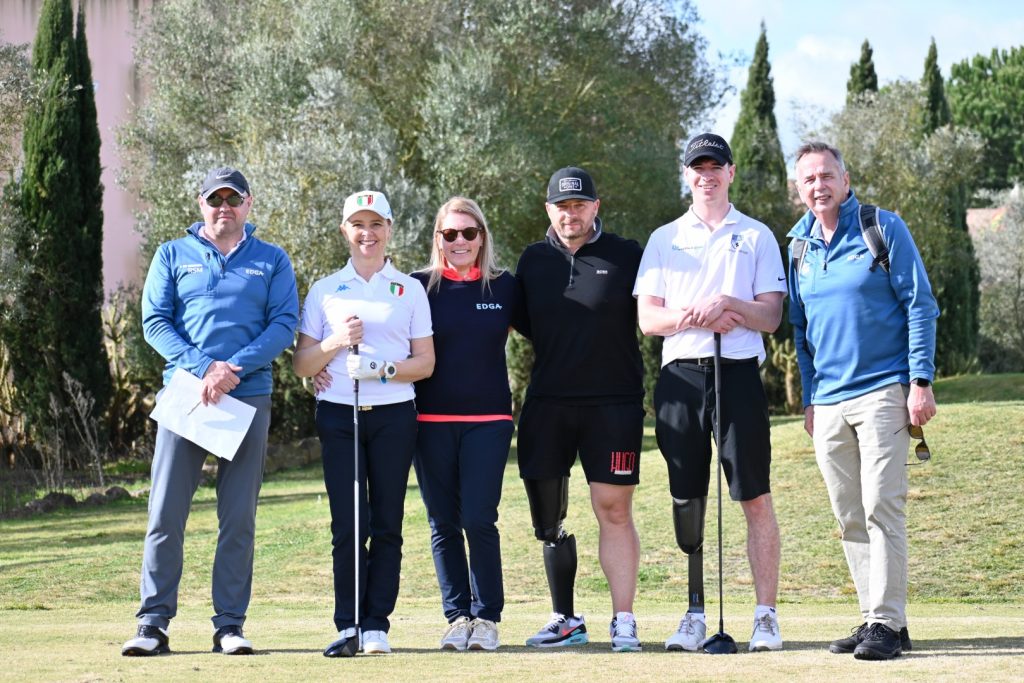
“And it gave me so much confidence that I’m on the right track now. So it makes it easier, it makes life so much more of a joy, and it makes me do my job so much better.”
While she enjoys all parts of her job, Manon recognises that everyone – not just in golf but in wider society – has to do more to make life more inclusive for people with disability, and to take away common prejudices.
“That’s hard to deal with because in EDGA we are always really seeing ‘Golfers First’, and then we see a disability, and that’s how the whole strategy works. That’s what we always say to everybody new: ‘First see the people, and then see the disability.’
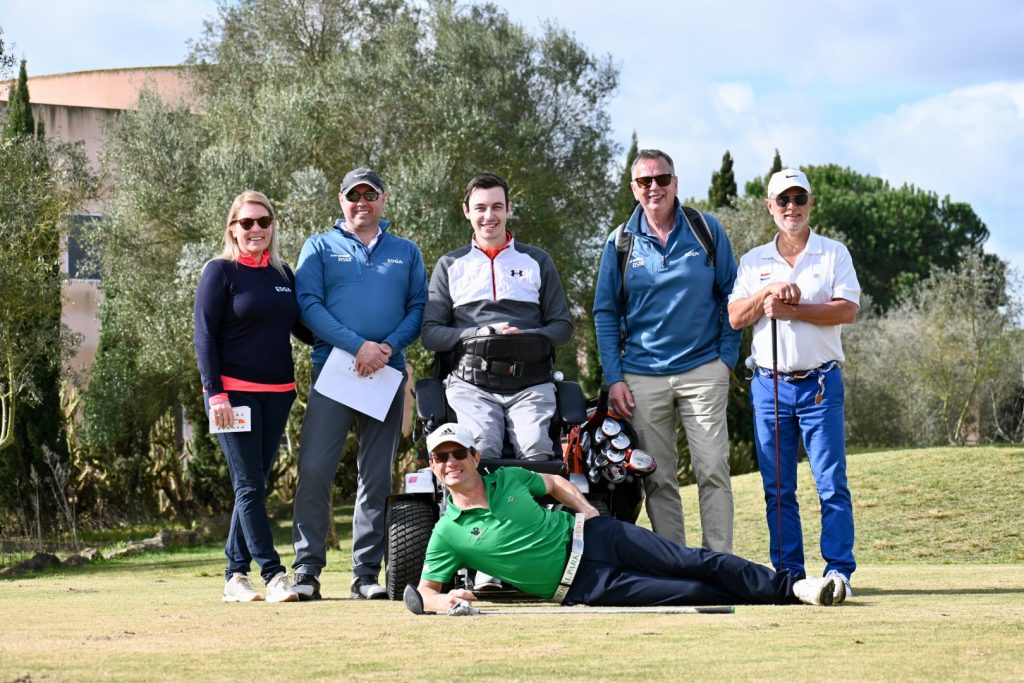
As Director of Tournaments, Manon assists players with advice and practical support for EDGA badged events either in person, by email or by phone. One of the main goals of the Tournament Team is to encourage tournament organisers to create more events at every level for golfers with disabilities (with or without an WR4GD pass), and to increase the opportunities for more individuals to participate and compete in EDGA badged tournaments along with national events for golfers with disability.
Manon sees recognising differences at every level of sport and society as the first step to genuine inclusivity. We are talking with her after recent news of the DP World Tour backed ‘G4D Tour’ for leading golfers with disability, while Manon’s ‘day to day’ in 2022 will play a key role in the expanding EDGA Tour; more events for more players in more countries around the world. It’s a hugely exciting proposition for Manon. While golf for the disabled grows internationally it continues to throw up challenges for the EDGA team, but these are challenges the team feel privileged to be involved with.
“I think the big puzzle pieces are there on the board. It’s not complete yet, but that’s a good thing because then our work is done. So I hope it’ll never be completed! [she laughs] But I think the bigger we get or the bigger that golf for the disabled gets, the more players we are going to get, and the bigger the picture will be.”
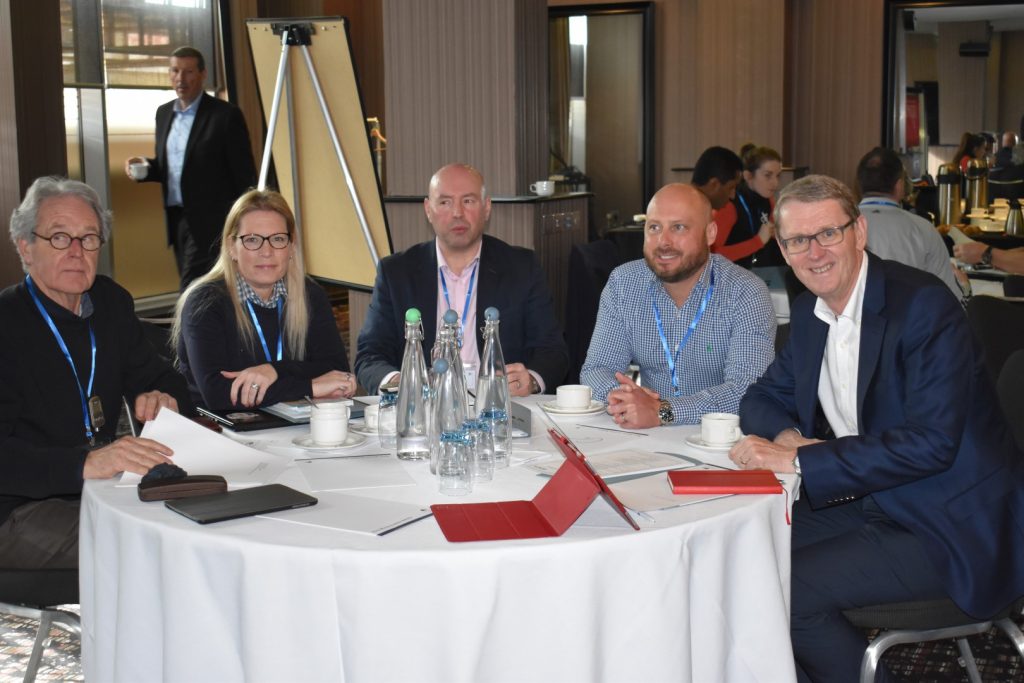
Manon stressed in our interview that she didn’t want her life to be seen as a struggle, but more about how positive thinking can help you succeed throughout your life. She first loved tennis and was a slightly unwilling golfer when she entered the game. But she now loves the sport, and loves working for EDGA and helping all of its players. Watching tennis and golf are pleasures, and her real joy is supporting Sébastien and Maxime as they play tennis and football. And her improved balance in life will sometimes see Manon with a paintbrush or book in her hand when time allows.
After our chat, in an email she added: “I am enjoying life so much, I am such a proud mother and the combination with EDGA makes my life absolutely perfect.”
Like so many of the players she meets on tournament day, Manon has adjusted to the tough times, and focused on her passions; it’s a winning combination.
Contact EDGA
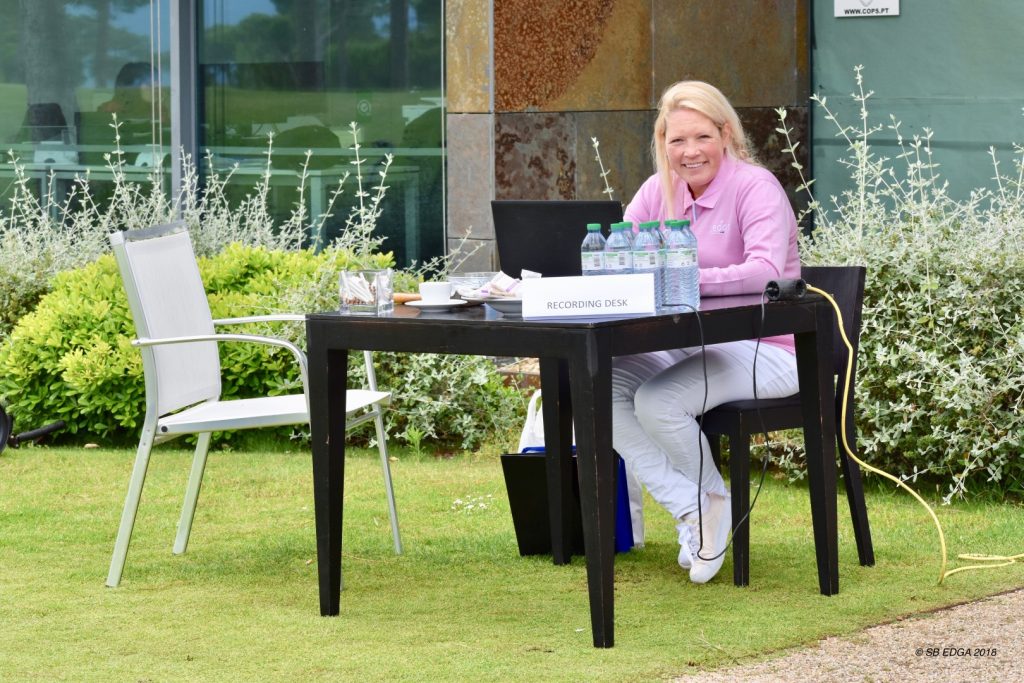
NB: When using any EDGA media, please comply with our copyright conditions


